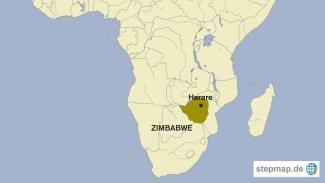Recycling
Turning trash into cash

A group of 40 women in dirty clothes, huge sacks of plastic waste in tow, rummage through waste containers in Glenview, a high-density suburb of Zimbabwe’s capital Harare. Other women sit on pavements, busily weaving various items from the plastic trash. They have formed a cooperative that deals with plastic waste.
Out of raw materials like supermarket bags or dumped plastic bottles, the women make armbands, handbags, necklaces, shoes and other things, which they sell in Zimbabwe and abroad. One of the women is 27-year-old Evelyn Mugaga, who has a baby strapped on her back. “Every day, I make over $ 45 from the various fancy items like necklaces and flat shoes. I make all of this from plastic waste,” she says proudly.
“I have managed to send my three children to boarding school thanks to what we are doing. I lost my husband in a car accident three years ago, and I have since become the breadwinner,” recounts Letiwe Sibanda, a 44-year-old woman working with Mugaga in the same cooperative.
Zimbabwean feminists praise the women’s work. “These women have seen the potential to make money from plastic garbage. They are producing items which are even exported to neighbouring countries like South Africa for sale,” says Trish Madzikatire, a member of Women of Zimbabwe Arise, an independent feminist organisation.
In 2016, more than 750 women countrywide received support from the government for their garbage-recycling projects. Women like Mugaga and Sibanda, who run thriving cooperatives, have started teaching other women on how they may change their lives by turning trash into cash.
Some plastic companies such as Waverly Plastics have turned to these cooperatives to get supplies of plastics.
Zimbabwe’s environment benefits from female garbage collectors too: “Because of them, there is less garbage thrown around now,” explains Joseph Tasosa, executive director of the Zimbabwe National Environmental Trust, a non-governmental pro-environment organisation. In the words of Steady Kangata, public relations manager of the country’s Environmental Management Agency (EMA): “Waste is waste to one person, but to another person it is a raw material to produce something new and a way to make money.”
Jeffrey Moyo is a journalist and lives in Harare, Zimbabwe.
moyojeffrey@gmail.com
Link
Women of Zimbabwe Arise (WOZA):
http://wozazimbabwe.org/













